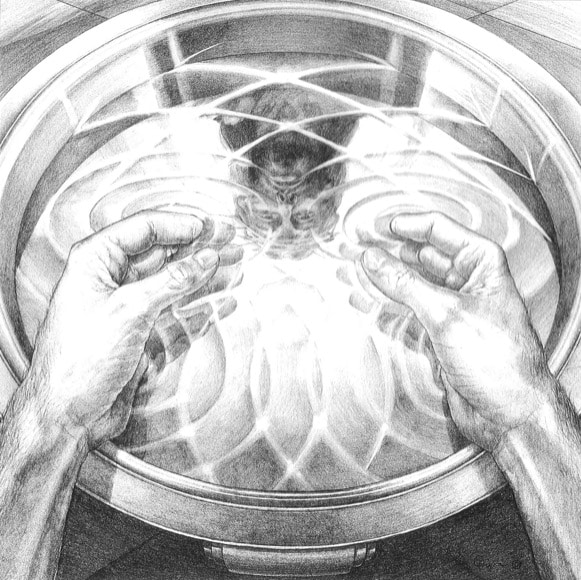April 10, 2017
(Art credit: Randy Dixon. Used with permission.)
Paulist Fr. Rich Andre preached this homily for Palm Sunday (Year A) on April 9, 2017 at St. Austin Parish in Austin, TX. The homily is based on the day’s readings: Matthew 21:1-11; Isaiah 50:4-7; Psalm 22; Philippians 2:6-11; and Matthew 26:14 – 27:66.
[After proclaiming Matthew 21:1-11.]
Did you notice that Matthew says Jesus rode into Jerusalem on both a donkey and a colt? It’s strange, but we believe Matthew is explicitly showing Jesus fulfilling a prophecy of Zechariah. Even though Zechariah probably wasn’t talking about two different animals, he used the Hebrew poetic device of using two names to describe one thing.
When a king rode into a city on a donkey instead of a horse, it indicated that he was coming in peace, not as an act of aggression. The people surely recognized that symbol. Their shouts of acclamation, however, echo other Bible stories of kings entering into Jerusalem, especially Judas Maccabeus (2 Maccabees 10:7), when the people also used palms to show their homage.
Christ is our King, our Prince of Peace.
Dear brothers and sisters, like the crowds who acclaimed Jesus in Jerusalem, let us begin this celebration in peace.
[After blessing the palms and singing Hosanna.]
Now the mood of our Mass changes drastically.
As Zechariah prophesied, “Your king shall come to you; a just savior is he / Meek, and riding on an ass, on a colt.” For the rest of this Mass, we journey with Jesus as he became our king through meekness, humility, and submission.
[After proclamation of Matthew 26:14 – 27:66.]
Matthew’s account of the Passion varies from those of Mark, Luke, and John in seemingly minor ways. Almost all the distinctive details are about other people, not Jesus. Judas commits suicide. Pilate washes his hands. Pilate’s wife has a dream. An earthquake occurs, the saints enter Jerusalem, and soldiers guard the tomb. If we concentrate on these details, will we miss the forest for a few trees?
There is also a danger of equating the crowds of Palm Sunday with the people of Good Friday. We don’t know how large the crowds were accompanying Judas, demanding the release of Barrabas, or mocking Jesus at Golgotha. But surely they were not as large as the crowds on Palm Sunday, and they surely are not a representative cross-section of all Jews. The characters in the Passion include people who knew Jesus well and those who didn’t know him at all. Friends and strangers alike rejected him. Friends and strangers alike accompanied him and unsuccessfully interceded on his behalf.
The question that hangs in the air during Holy Week is about the nature of suffering. It is always hard to transition from the joy and triumph at the beginning of Palm Sunday to the evil and seeming defeat of the Passion. How could Jesus’ closest disciples betray and abandon him? Why did Jesus endure such abuse, torture, rejection, and death? How could this be part of God’s plan? We may gain insights into the Paschal Mystery from time to time in our lives, but we will never fully comprehend the mystery in this lifetime.
The Passion definitively proves that God is not remote. God understands the human condition. Jesus Christ emptied himself of godliness. He experienced the full range of human emotions. He suffered and died in the midst of the complexities of social sin.
The most distinctive element of Matthew’s account is not found in the passion itself. Matthew is the teaching gospel, structured around five teaching discourses, the last of which occurs after Palm Sunday but before the Passion. The last three lessons of this discourse – the parable of the ten virgins, the parable of the talents, and the last judgment – may indicate how to interpret Matthew’s account of the Passion. In each of those lessons, the characters who take action are rewarded.
The events of the world may seem to be beyond our control, but our actions make a difference. When do we actively contribute to evil, like Judas? When do we actively intercede to change the course of events, like Pilate’s wife? When are we called to quietly accompany those who suffer, like Mary Magdalene? But perhaps most damning of all, when do we wash our hands of our power to change the course of events, like Pontius Pilate?
Our actions – no matter how small – make a difference in how the kingdom of God breaks into the world. As Jesus teaches about the last judgment, whatever we do for a brother or sister – whether we recognize it or not – we do it for Christ. We know neither the day nor the hour.
